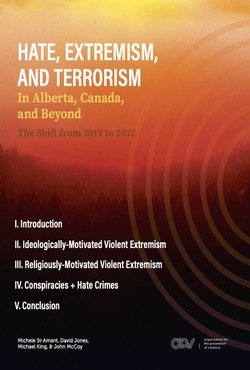By Michele St-Amant, David Jones, Michael King, & John McCoy
There have been significant changes in the three years since the Organization for the Prevention of Violence (OPV) published its first report about hate-motivated violence, extremism and terrorism in Alberta, Building Awareness, Seeking Solutions. The Covid-19 pandemic, protests against public health measures, tense elections in the United States, and the backlash to racial justice movements, among other events, have had broad social repercussions. Some of which have changed the composition and scale of the threat of extremism and terrorism – which has become more diffuse and comprised of a broader set of grievances and ideologies.
This report is organized using the nomenclature developed by the Government of Canada to categorize different forms of extremist ideologies. As such, the findings related to ideologically motivated violent extremism and religiously motivated violent extremism are summarized first.i Next, we summarize our findings about conspiracy theories and hate incidents, including crimes, within Alberta and across Canada.
Alberta: Organization for the Prevention of Violence, 2022. 115p.



